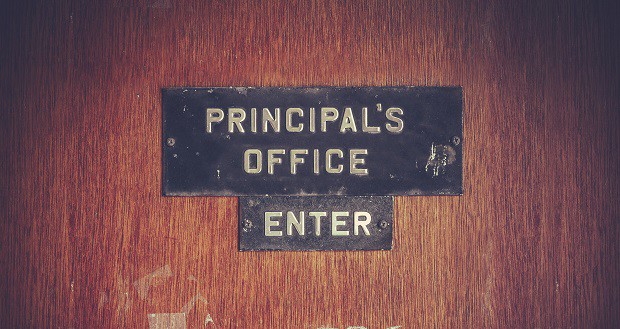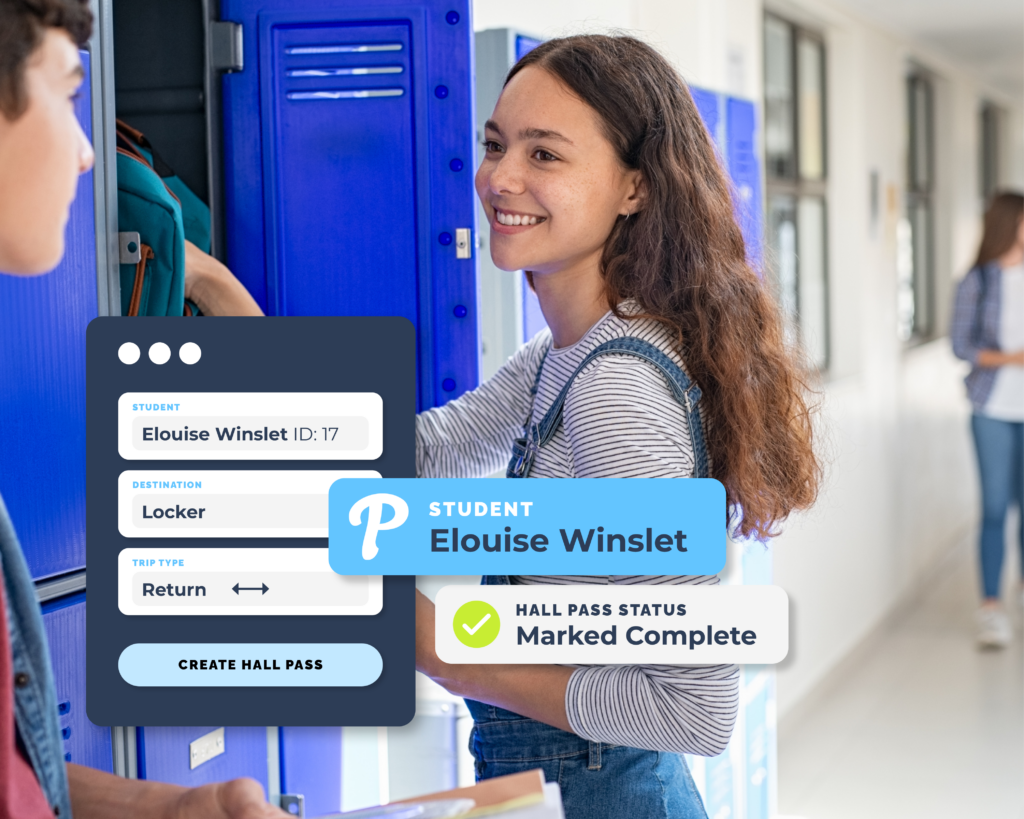K-12 principals must be some of the most effective leaders in the world to be successful. It’s no surprise to educators when you tell them that an average day in the life of a K-12 school administrator is filled with last-minute student emergencies, faculty challenges, and angry parents all before most people wake up to start their days. At times, the job can be a thankless one, but principals push through with one common goal; make it possible for the kids they support to have the best possible education that can be provided.
Below are the Top 10 skills every school principal must have for running an efficient school.

The job of a principal can get out of hand fast, but skilled principals around the world all share some common traits.
10) Managing Risk
Principals must make split-second decisions while weighing the costs and benefits. They have to calculate differing possibilities and prospective outcomes. Successful principals are always looking ahead for both risks and opportunities that affect their schools.
Ways principals can mitigate risk could be through a digital hall pass tool in order to account for students’ whereabouts on campus. Or they might consider implementing a dismissal management system to ensure students are dismissed via the right transportation method and person each day. This could also be as simple as asking teachers and other paraprofessionals at their school what their safety and risk concerns are in order to create a plan for addressing them!
9) Active Listening
School administrators listening actively means being able to hear/see things beyond their point of view and checking their own understanding or biases. Successful principals intentionally focus on listening and understanding things from another person’s perspective. Active listening is one of the best skills that a principal can cultivate and use.
8) Priority Management
It is easy to spend significant amounts of time and energy on tasks that are unimportant if you do not have clear priorities. The better a principal can prioritize the things that have to be done, the better they can focus their efforts on the things that matter to their students and faculty most.
Goal setting is a great tactic for identifying priorities easily. Principals should have a clear set of goals and communicate those goals to staff in order to make priorities crystal clear.
7) Empower Others
Successful principals see the greatness in others and do what they can to bring that greatness out of them. Faculty and staff grow as leaders when they get ownership of their decisions, hold themselves accountable for the decisions they make and outcomes that result, and have firsthand experience on the consequences of their actions. Ask a strong principal and s/he will tell you that it is part of their job as a leader to help their people develop into top performers.
Empowering others involves creating a supportive and caring environment where individuals feel valued. Principals can encourage professional growth by providing mentorship, constructive feedback, and recognition for achievements. Cultivating a caring atmosphere promotes a sense of belonging and motivates faculty and staff to excel in their roles.
6) Delegate More Tasks
By nature, strong leaders tend to lead by example, with a tendency of wanting to do things by themselves, but it is important to learn how to delegate. The benefits of delegating include better controlling your workload, develop your staff’s core skills, and enables your team to meet their goals faster, produce the best results, and help you accomplish more tasks than you would on your own.
Delegating tasks is a key management skill all principals need for achieving both personal and organizational goals. Principals can optimize their team’s capabilities by assigning tasks based on individual strengths. Delegation not only lightens the workload but also empowers staff, fostering skill development and contributing to the overall success of the school.
5) Act Decisively
Effective principals take time to ensure that they have a complete understanding of the problems that they face and respond by taking strong decisive action without over questioning themselves. This skill can be achieved by balancing a) impulses that come from being impatient (reacting without thinking) and b) overthinking and delaying action.
4) Motivate Change
The fastest way to create a school where faculty and staff are stagnant and stuck is by fostering an environment that believes in the mantra “If it ain’t broke, don’t fix it”. A key role in the life of a principal is to be persistent in constantly motivating change. This means change for the school, faculty, students, parents, and neighboring communities.
Motivating change requires collaboration and communication. Principals can establish collaborative forums, such as regular staff meetings or brainstorming sessions, to involve the school community in decision-making processes. Emphasizing the benefits of change and actively seeking input fosters a culture of collaboration, ensuring that everyone is invested in the school’s continuous improvement.
3) Communicate Clearly
Nothing makes performance suffer more than unclear communication. It doesn’t matter if it’s a staff member, faculty, parent, or student, they will not be able to do what you need them to do if they don’t know what you are trying to communicate. Strong communication is one of the top foundational elements to being a successful principal.
Principals should ensure that expectations, goals, and updates are communicated transparently. Implementing a feedback system can also enhance communication, allowing for a continuous exchange of ideas and information among all stakeholders.
2) Promote Your Vision
School Principal skills are unique. Make your vision clear, not only to your staff, parents, and students but also to yourself. Create and promote a clear and defined vision for where you want your school to go and have it presented to your team daily. When this is achieved, not only is everyone more motivated, but also more effective since their responsibilities stay connected with your strategic goals and vision.
1) Educator First / Administrator Second
It’s easy to focus on career goals, day to day responsibilities, school budgets, and much, much more. As a principal, you are responsible for many things but don’t forget, you are an educator first. Successful principals keep their focus on their student success. Students depend on you, their parents depend on you, and the community (both inside and outside the school) depend on you. You cannot grow into a strong principal if you do not keep your focus on your students.
When you develop these skills on a daily basis, you will not only become an effective end-user of School principal skills but more than likely, a successful one as well.
What Teachers Value Most in Their Principals
Teachers play a pivotal role in shaping a school’s success, and their relationship with the principal significantly influences the overall school culture. Here are the key qualities that teachers value most in their principals:
-
Supportive Leadership: Teachers appreciate principals who offer unwavering support in their professional development and classroom endeavors. A supportive principal fosters a positive working environment, boosting teacher morale and job satisfaction.
-
Effective Communication: Clear and open communication is paramount. Teachers value principals who keep them well-informed about school policies, decisions, and upcoming changes. Transparent communication builds trust and encourages a collaborative atmosphere.
-
Respect for Educators: Principals who demonstrate respect for the expertise and dedication of their teaching staff create a positive work environment. Recognizing and valuing teachers’ contributions cultivates a sense of pride and commitment among the faculty.
-
Accessible and Approachable: Approachability is a key factor in effective leadership. Teachers appreciate principals who are accessible, open to feedback, and willing to address concerns. A collaborative relationship between teachers and principals enhances the overall school culture.
-
Advocacy for Resources: Principals who advocate for adequate resources, including instructional materials, technology, and professional development opportunities, show a commitment to enhancing teaching and learning experiences.
-
Student-Centered Focus: Teachers value principals who prioritize the well-being and success of students. Principals who actively engage with students, understand their needs, and support initiatives that benefit the student body contribute to a positive school culture.



